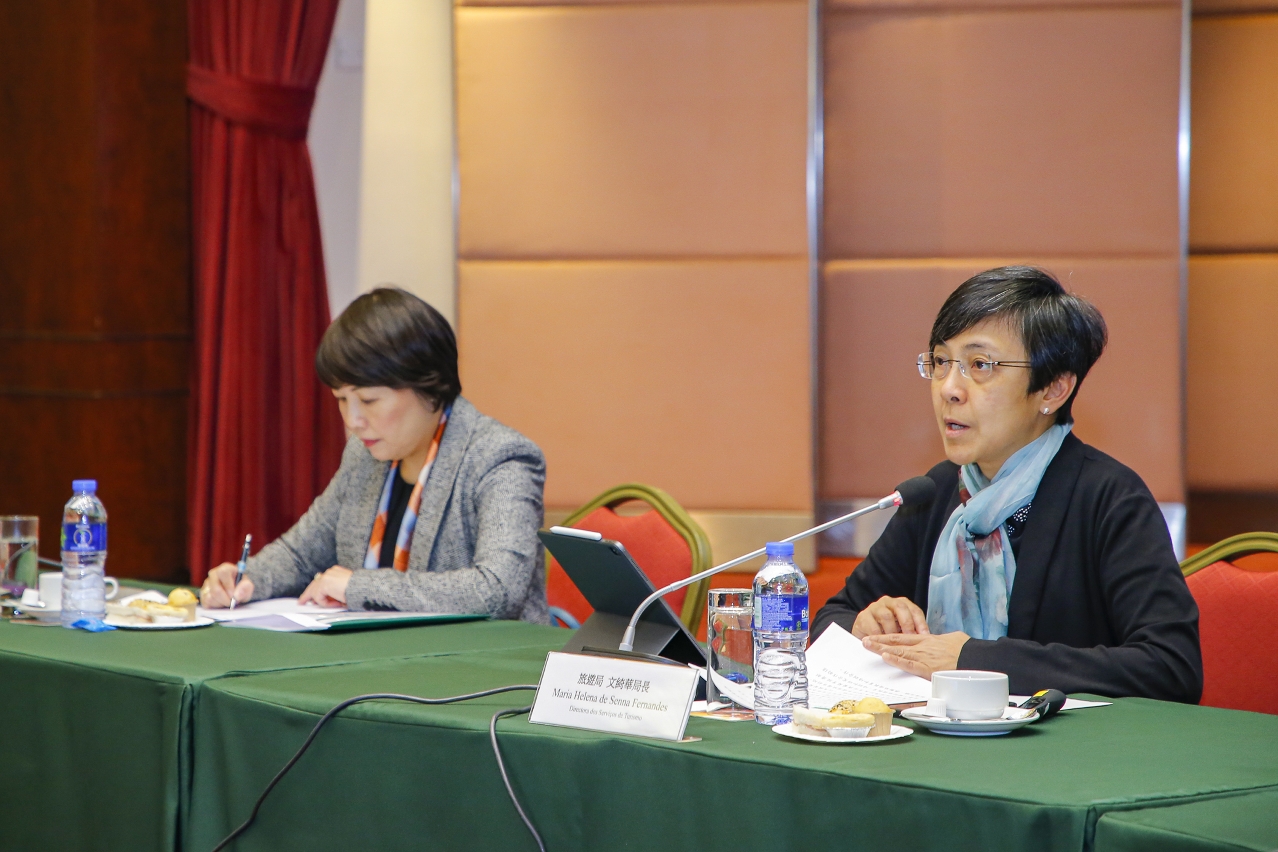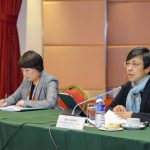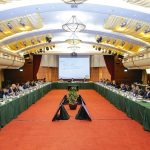 Acting Committee Chairperson Senna Fernandes presides over the Plenary Meeting
Acting Committee Chairperson Senna Fernandes presides over the Plenary Meeting
The Tourism Development Committee (CDT, on its Portuguese acronym) convened the second Plenary Meeting of 2019 today (20 November). Director of Macao Government Tourism Office (MGTO) and Acting Committee Chairperson, Maria Helena de Senna Fernandes, presented the latest situation of Macao’s tourism industry and led a discussion with committee members on the structural change in visitor segments and transformation of visitors’ travel style. CDT members and representatives of the four Task Forces actively brought up suggestions regarding the current tourism situation in Macao.
During the meeting, Senna Fernandes reported on MGTO’s work progress and the latest tourism situation. Since the inauguration of the Hong Kong-Zhuhai-Macao Bridge, Macao has registered considerable increases in visitor arrivals. A major shift has also been taking place in the structure of visitor segments and visitors’ travel style. Other data revealed that the happenings in Hong Kong in recent months have influenced Macao’s tourism industry to a certain extent.
Three of the Task Forces under the tutelage of CDT pointed out in their reports that the incidents in Hong Kong in recent months have created an impact on Macao’s tourism industry and the business of local travel agencies. They expressed hope that more multi-destination tourism products can soon be developed between Macao and other cities in the Greater Bay Area, while the competitive strengths of Mainland airports can be leveraged to transform the traditional pattern of joint tours to Hong Kong and Macao. They also suggested MGTO can adjust its marketing strategies, formulate measures to alleviate the business predicaments of industry operators, while ensuring that overseas visitors are aware of the safe condition in Macao.
The four Task Forces delivered their work reports which contain concerns and suggestions of committee members. Coordinator of the Task Force on Human Resources and Quality Management, Wilfred Wong, reported and advised on the employment of drivers and human resources for non-gaming operations of local businesses. Deputy Coordinator of the Task Force on Tourism Policy, Planning and Regional Cooperation, Melinda Chan, reported on the supporting policies and challenges for Macao in developing into a city ideal for travel, as well as delivered suggestions on how to enhance coordinated tourism development and synergy between Macao and other cities in the Greater Bay Area. Deputy Coordinator of the Task Force on Tourism Products and Events, Irene Wong, elaborated suggestions on how to enhance Macao’s integration in the Greater Bay Area, promote local events and develop night market products. Member of the Task Force on Tourism Products and Events, Cheng Wai Tong, reported on destination promotion and marketing strategies, online-to-offline marketing strategies, as well as suggestions on how to promote Macao’s tourism, cultural and creative industries in the Greater Bay Area.
CDT members also raised suggestions on different issues including integration of gastronomy and tourism, development of visitor source markets and tourism products, hotel room price, visitor consumption and sharing of tourism data, among other topics.
During the meeting, MGTO presented the progress of implementation of the Macao Tourism Industry Development Master Plan (“Master Plan”) and the pertinent future tasks, including a plan to conduct an evaluation for the Master Plan in 2020.
CDT members who expressed their opinions during the meeting include (in order of speaking): Tong Kai Chung, Melinda Chan, Ng Sio In, He Haiming, Wilfred Wong, Lo Wang Chun, Tsui Wai Man, Li Qijian, Leng Sai Vai and Alan Wong.



